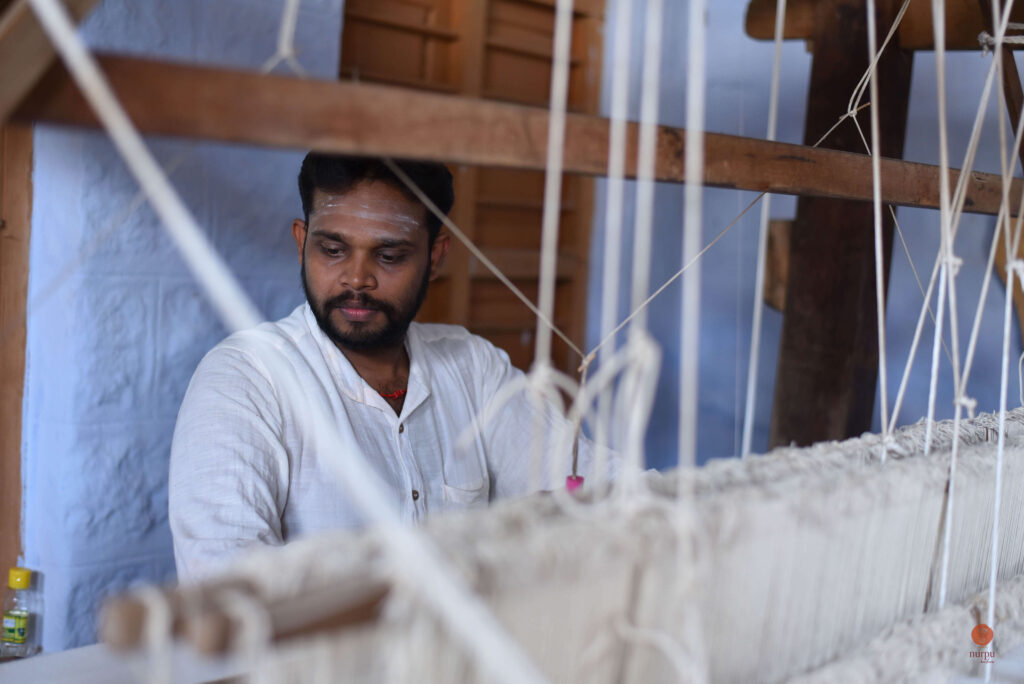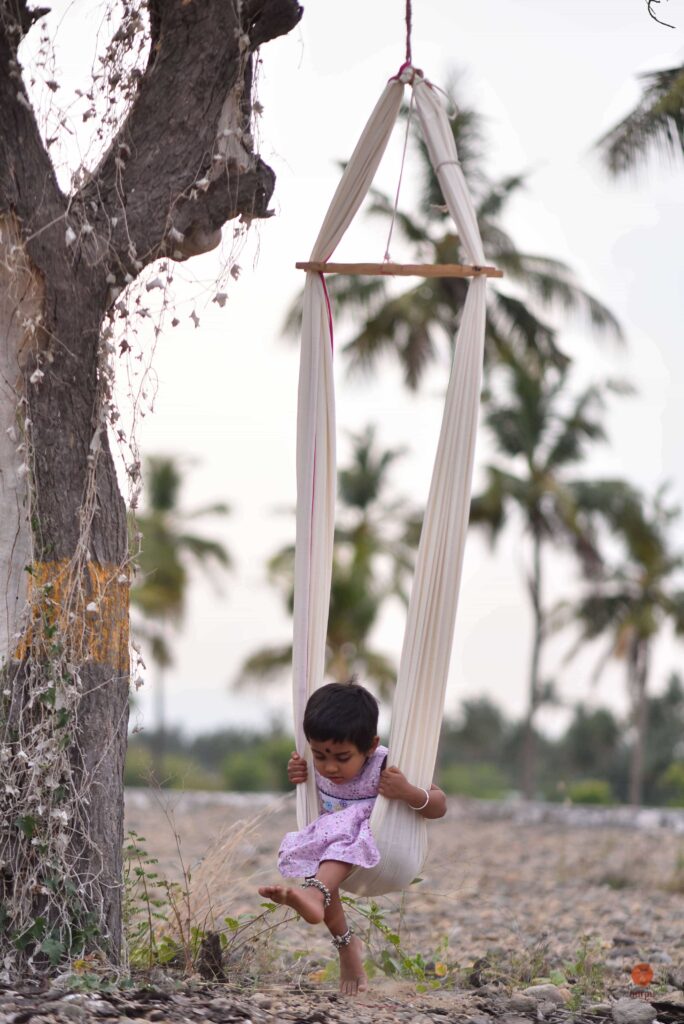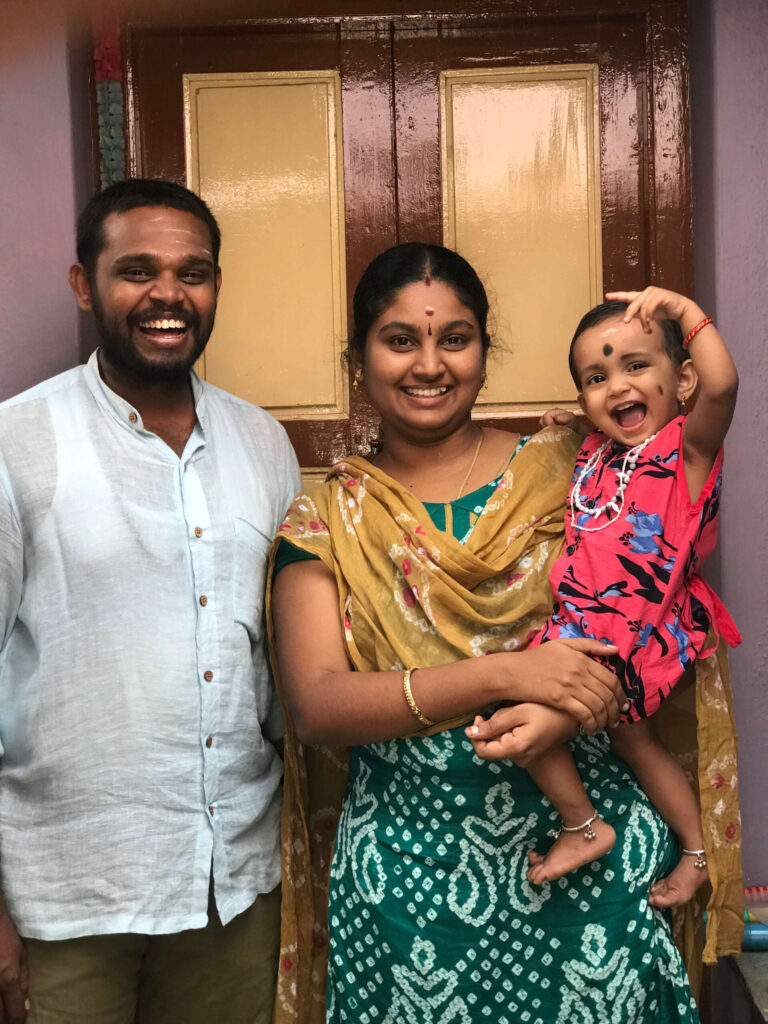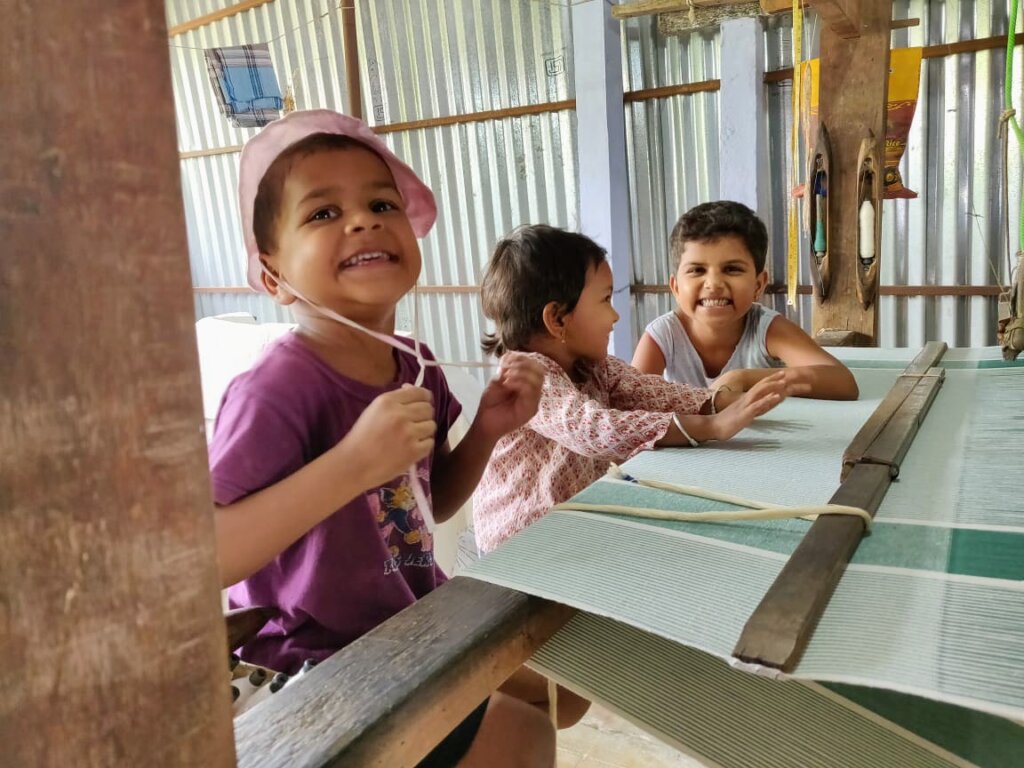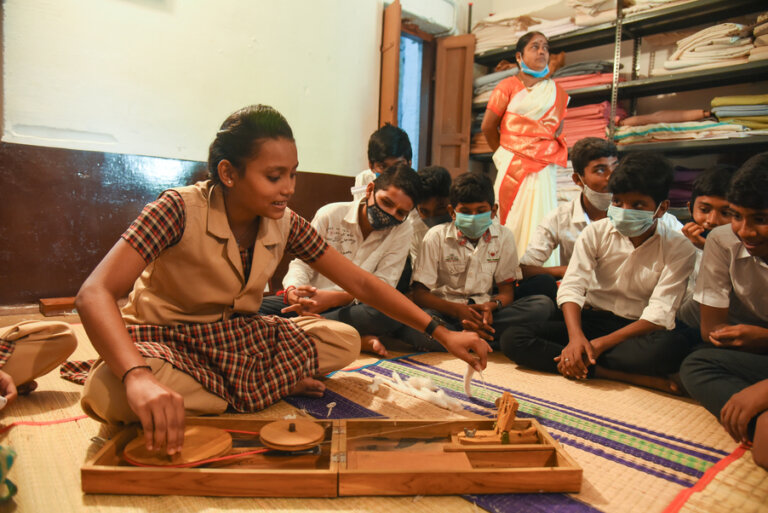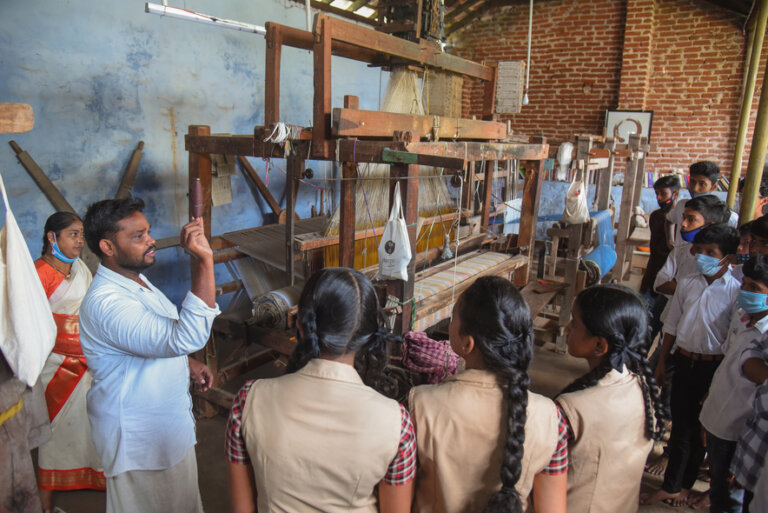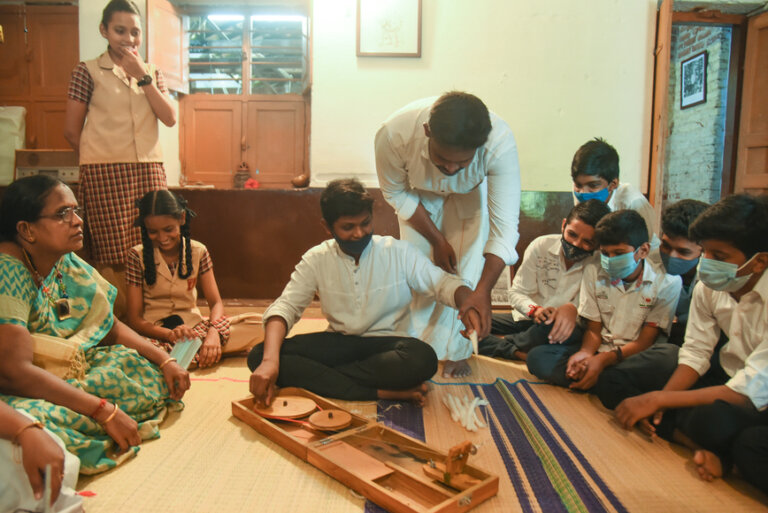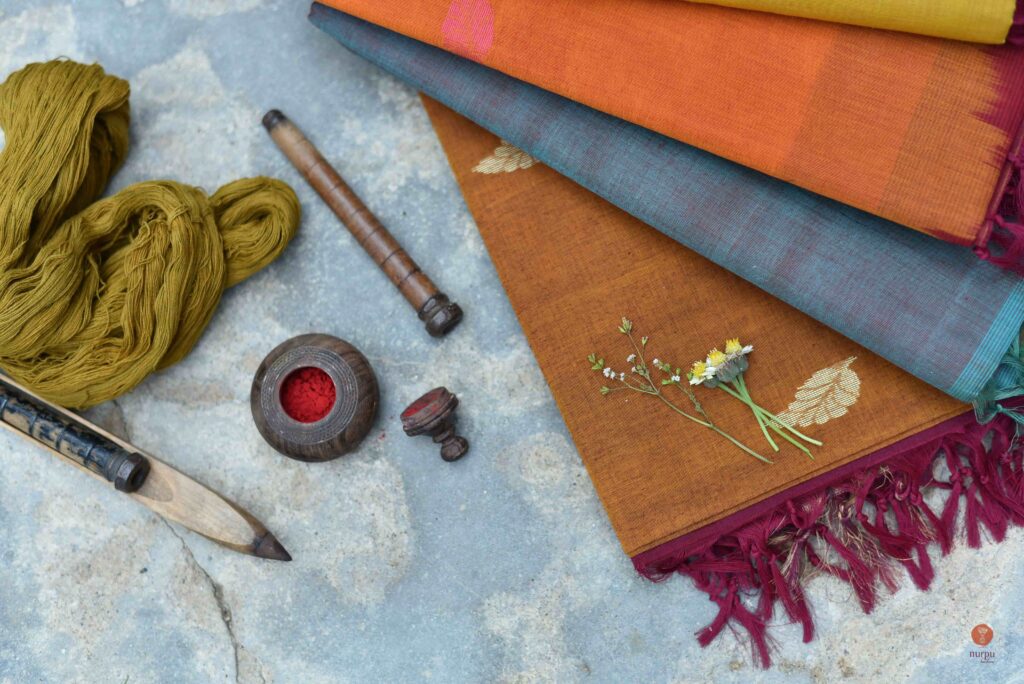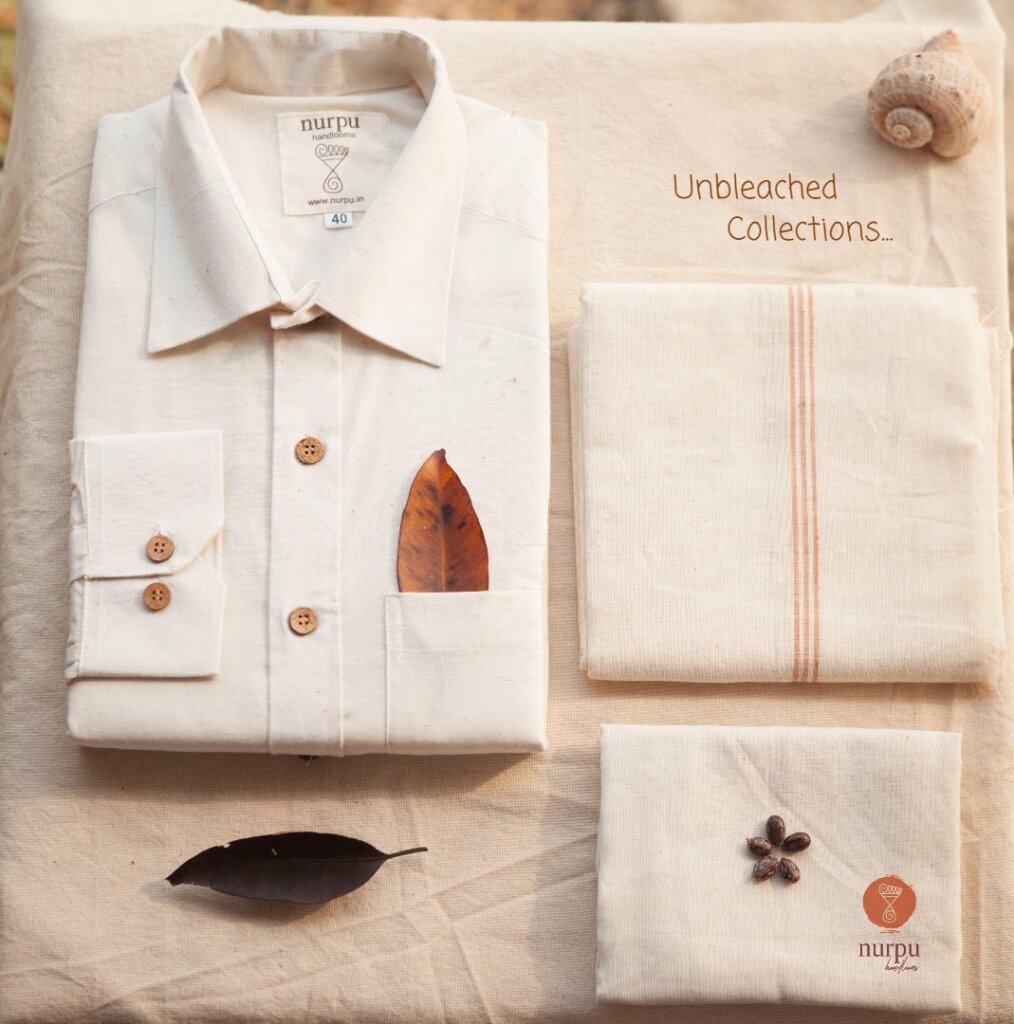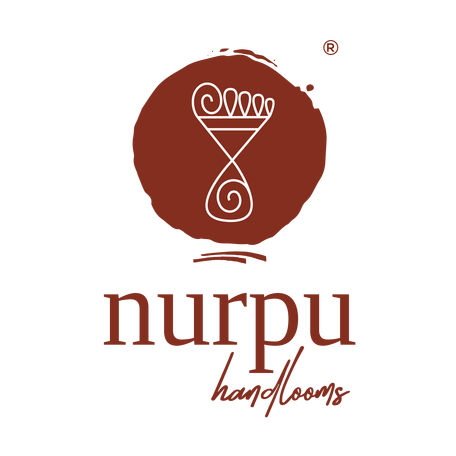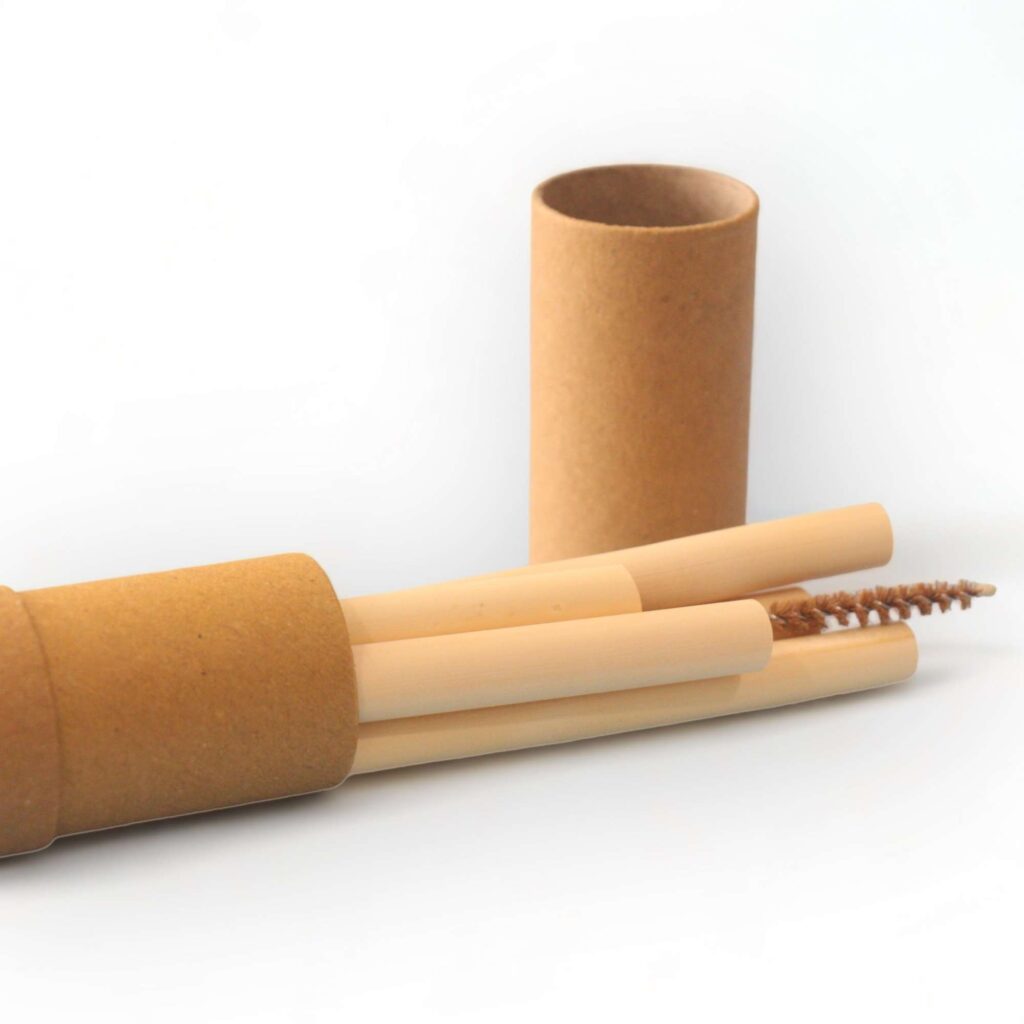Towards the outskirts of Erode, amidst the claps and whirrs of the weaving equipment, one will find C. Sivagurunathan, wearing Khadi head to toe sitting amidst the weavers in the tiny village of Chennimalai—popularly known as the weaving town. The village is home to generations of weavers whose population has seen a sharp decline since globalization.
Sivagurunathan was born into a family of weavers himself. However, like most other millennials from the outskirts of the city, his family urged him to move to Chennai to pursue a more financially stable career at an IT company. Ten years into his career, Sivagurunathan was climbing the ladders of the corporate world—travelling between Bangalore and Chennai, working on different types of hardware and software in the banking sector and earning enough money to start a family.
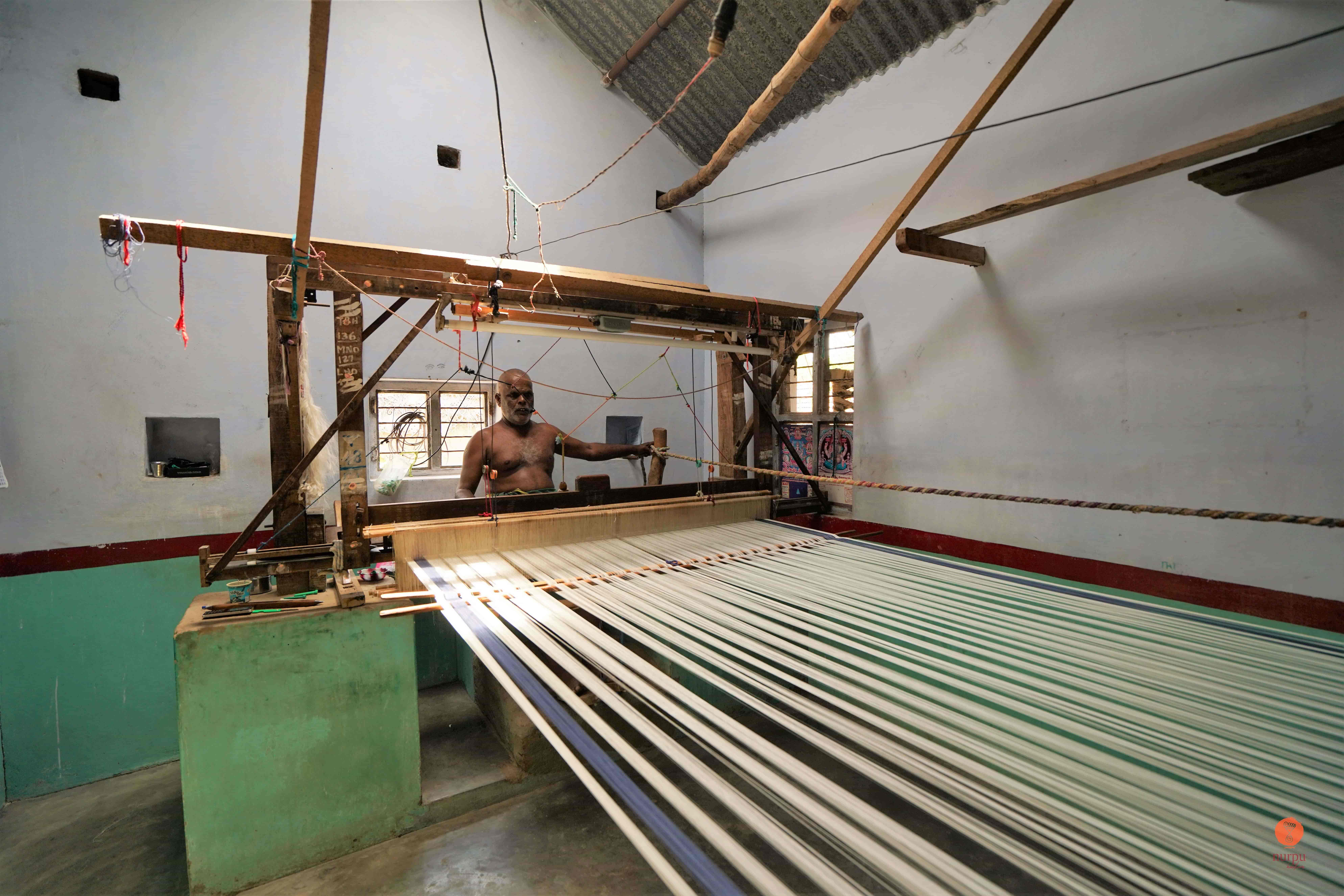
Life was perfect, but to the young IT employee, it always felt like something was missing. “I used to spend a lot of my free time reading books,” reveals Sivagurunathan, “One of my friends introduced me to the book, ‘Mann Puzhu’ published by the Cuckoo Forest Movement. It changed my life!” The book dealt with themes surrounding the pollution of water bodies. It opened a portal that changed his perspective of life entirely.
“I attended the Paddy Festival, hosted by Cuckoo Forest Movement at Thiruvannamalai,” he narrates, “That was the beginning of my search to do something meaningful.” At the festival, the young millennial was introduced to Nammalvar, Sivaraj Anna and Peter Anna, the stalwarts behind the Cuckoo Movement, who almost instantly took the role of mentor through his life-transforming journey.
The movement fostered a Gandhian lifestyle that attracted the young IT professional and several others like him. Slowly he saw himself spending his weekends at Thiruvannamalai working and interacting with the people of the organisation. “In my haste to escape the mundane city life, I even thought of pursuing agriculture,” Sivagurunathan pauses to laugh, “But Sivaraj Anna knocked me back into my senses and said that there were many ways to make an impact and that I shouldn’t rush into finding where my passion lies.”
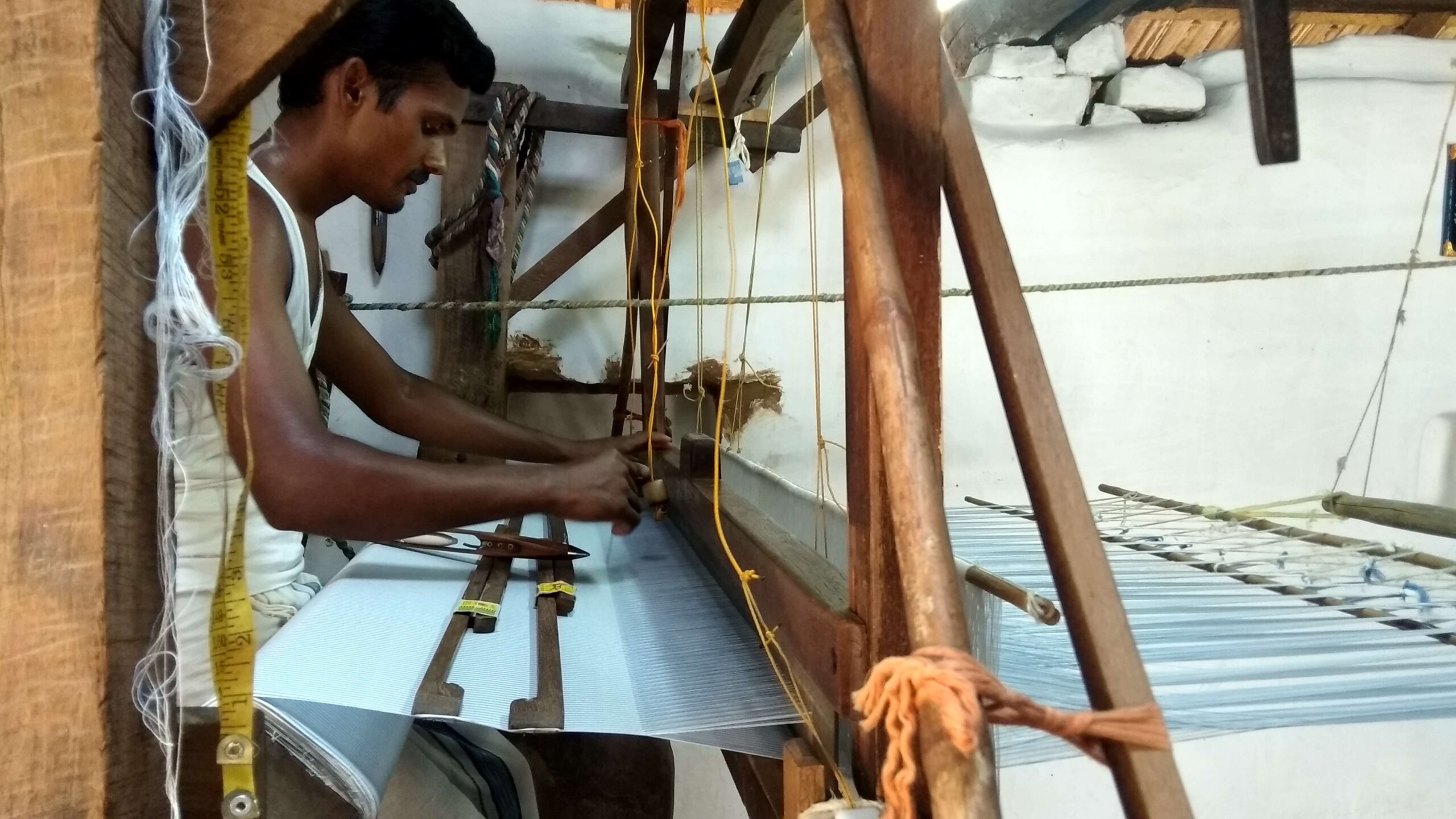
Around 2015, Sivagurunathan witnessed the movement materialise into an unconventional school for underprivileged children on the foothills of Thiruvannamalai. He watched impact being made right before his eyes. “I saw it go from a remote village with nothing but pilgrims to a vibrant community with people from different backgrounds coming together to make Cuckoo Forest School what it is today,” he smiles, “That gave me the confidence to believe that I could build an impactful community too.”
Sivagurnathan went back to his roots and discovered the weaving village of Chennimalai from where he would start Nurpu. His goal was to create an effective system to revive the dying art form. Since the power looms came about, the weavers have been migrating to factories or moving to different jobs that are more profitable. The artisans no longer have the autonomy they once had in this profession. He identified a unit with six weavers and began making simple handloom garments.
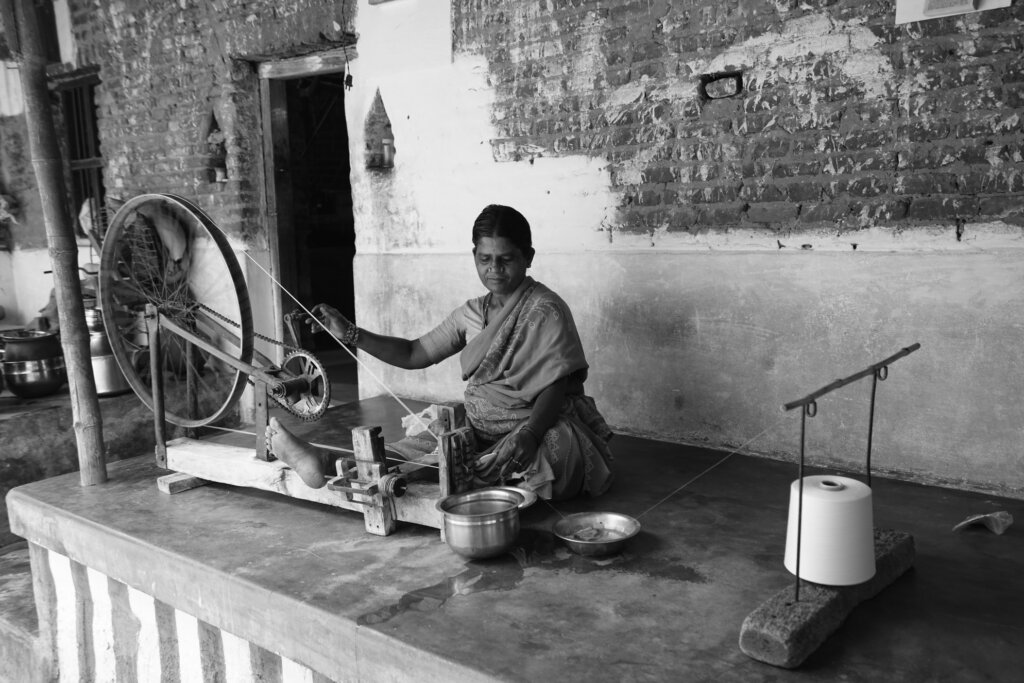
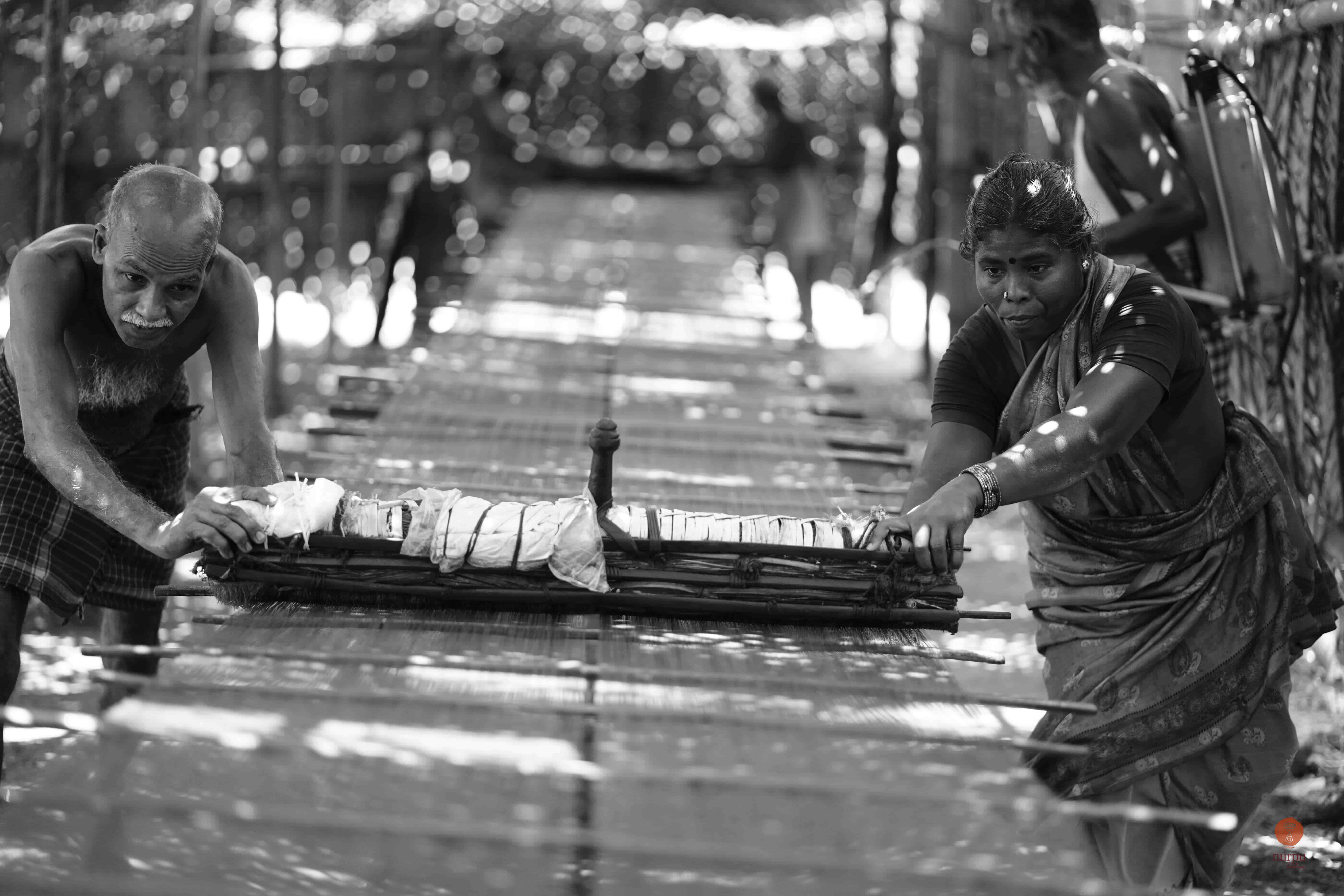
Contrary to the reaction one would expect towards his intentions, the young entrepreneur received the opposite of a hero’s welcome. “That is the challenge with starting a rural enterprise. They have seen a long history of individuals with claims that never bore fruit,” he reasons, “Their skepticism is justified.”
Around 2017, he passed on his resignation letter and became a full-time entrepreneur. He shifted base from Chennai to the weaving village. All of this coincided with the birth of his first child. “I was aware that we would not be immediately profitable, but for me, it was important to make an impact for the generations to come.”
His family underwent an extreme lifestyle transformation. “Once you live in the village—one with nature and the community—you understand the important things in life,” he admits, “It did take time to adjust to, but the sustainable lifestyle grew on us.” With time, the village grew more accepting of the new entrepreneur, the number of weavers expanded from six to thirty and his daughter (who witnessed the effort that went behind making her clothes) learned to value everything around her.
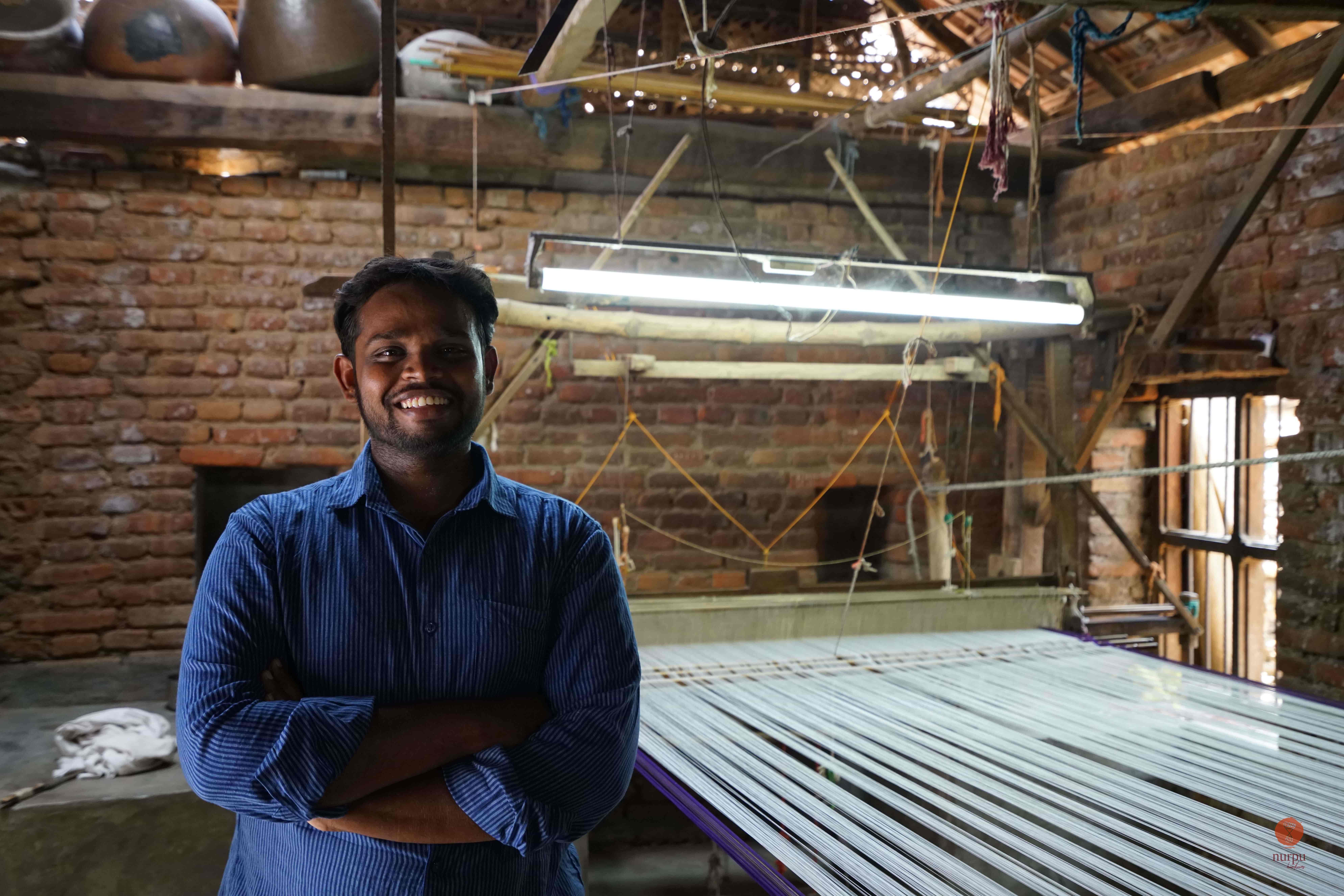
At its inception, Nurpu would only weave white cloth because textile dying is one of the largest contributors to water pollution. “Our ideals to create a sustainable ecosystem of weavers backfired with this decision. Only five pieces were sold,” says the founder with dismay, “It took me a while to realise that transformation to a sustainable lifestyle cannot happen in a day and that I would have to take baby steps towards my ideals.” He found midground and decided to use natural dyes for his handloom products.
A few years in, two weavers at the unit died and with them died the unique self-on-self cross weave. That was when Sivagurunathan realised that almost all the weavers he knew were in their late fifties or sixties. He had only learned to weave after moving to the village as his grandfather forbid him from entering the premises when he was younger. “He was afraid that I would accidentally get hurt on the sharp shuttle,” he recalls watching his grandfather from a distance, “Nevertheless, I was exposed to the process in school where we had a few hours designated for weaving class. Nothing like that exists anymore.” As a result, Nurpu expanded to start a weaving school earlier this year, where students could learn from master weavers from the weaving community.
To sustain the livelihood of the weavers through the pandemic, Nurpu started making cradle cloth for government hospitals. Besides this, the entrepreneur has been travelling across the country to identify weavers from different states to collaborate and learn new styles. “Since this Diwali, we have been focused on creating new designs through our weaves because that is the only way we can mark up our products to give our weavers a higher salary,” he explains how the time that goes behind the weave pattern would determine the cost that it could be sold for. “For example, a jacquard saree would take four days of effort while a plain saree would only take about one and half days.”
The brand sells shirts, dhotis, towels, sarees and fabrics through their online store and select organic stores in Coimbatore. Sivagurunathan’s start-up in the weaving village is more than just a way to revive the art of handloom. The young entrepreneur strives to build a sustainable system that would help the entire textile community where there is an active collaboration between different communities of cotton pickers, spinners, weavers, dyers, tailors and even fashion designers.

